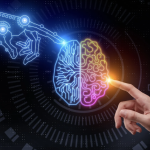Working through the complexities of relationships can be both fulfilling and challenging, especially when faced with sensitive topics like pornography addiction. Porn addiction is an emotional reliance on pornography that disrupts everyday life, interpersonal connections, and overall functioning. A person can become dissatisfied with their own sex life or engage in risky behaviors. Certain medical professionals view porn addiction as a subtype of hypersexual disorder, encompassing behaviors like excessive masturbation. Research from 2019 indicates that the prevalence of these disorders may range from 3% to 6% of the population.
Signs of Porn Addiction:
Here are some signs that pornography might be causing an issue:
- A person’s sexual satisfaction decreases.
- Pornography contributes to relationship difficulties or decreases satisfaction with one’s partner.
- An individual may resort to risky behaviors to access pornography.
- They prioritize viewing pornography over other responsibilities.
- They seek increasingly extreme pornography to achieve the same level of satisfaction that less extreme content once provided.
- They experience frustration or shame after viewing porn, yet continue to do so.
- They wish to stop their use of pornography but find themselves unable to do so.
- They invest significant sums of money in pornography, potentially neglecting essential daily or family needs.
- They use pornography to cope with sadness, anxiety, insomnia, or other mental health
Causes of a Porn Addiction:
The development of pornography addiction, like other forms of behavioral addictions, is influenced by many factors that vary from person to person. Some potential causes and contributing factors to porn addiction include:
- Biological Factors: Certain biological factors, such as genetic predispositions and neurochemical imbalances in the brain (e.g., dopamine dysregulation), may contribute to the development of addictive behaviors, including compulsive pornography use.
- Psychological Factors: Underlying psychological issues, such as anxiety, stress, depression, low self-esteem, or unresolved trauma, can increase vulnerability to using pornography as a coping mechanism or means of escape.
- Social and Cultural Influences: Cultural norms, societal attitudes toward sex, and easy access to online pornography can normalize and facilitate compulsive use, especially in environments where pornography is readily available and widely accepted.
- Early Exposure: Early exposure to pornography during childhood or adolescence, particularly at critical stages of brain development, may increase the risk of developing problematic use patterns later in life.
- Emotional Regulation: Difficulty in managing emotions or interpersonal relationships may lead individuals to seek comfort, validation, or arousal through pornography use as a coping strategy.
- Environmental Triggers: Environmental factors such as stressors, boredom, loneliness, or peer influences can trigger and reinforce compulsive pornography use as a maladaptive coping response.
- Rewards and Reinforcement: The pleasurable and rewarding effects of pornography, driven by the release of dopamine and other neurotransmitters in the brain, can lead to the development of addictive patterns through reinforcement of the behavior.
- Co-occurring Disorders: Porn addiction may coincide with other mental health illnesses, such as substance use disorders, compulsive behaviors, or impulse control disorders, which can contribute to the complexity and severity of the addiction.
It’s important to recognize that addiction is a multifaceted phenomenon with no single cause, and individual experiences may vary widely. Effective treatment and recovery from porn addiction often involve addressing underlying psychological, social, and environmental factors through comprehensive therapeutic interventions tailored to each person’s unique needs.
Porn’s Impact on a Romantic Relationship:
A pornography addiction can have profound and multifaceted impacts on romantic relationships, affecting both partners in significant ways. One common consequence is decreased intimacy, as the person with the addiction may withdraw emotionally or become less interested in engaging intimately with their partner. Regular exposure to pornography can also distort one’s perception of healthy sexual relationships, leading to unrealistic expectations and comparisons with sexual experiences depicted in pornographic content. Communication breakdown often occurs due to feelings of shame, guilt, and secrecy associated with pornography addiction, causing partners to avoid discussing issues related to pornography use and leading to misunderstandings and resentment.
Trust within the relationship can erode as partners may feel betrayed, hurt, or deceived by continued pornography use despite promises to stop. Additionally, partners may feel emotionally disconnected, unfulfilled, or dissatisfied in the relationship due to the focus on external sexual stimuli rather than genuine emotional and physical connection. Pornography addiction can contribute to sexual dysfunction, such as erectile dysfunction or difficulty achieving arousal with a partner, due to desensitization or unrealistic expectations developed from pornographic content. Conflict and tension often arise, with arguments, resentment, and feelings of inadequacy or insecurity on the part of the non-addicted partner.
Both partners may experience emotional withdrawal and isolation as a result of the addiction, feelings of loneliness, and disconnection within the relationship. In severe cases, untreated pornography addiction can contribute to the breakdown of the romantic relationship, with partners feeling unable to reconcile the impact of the addiction on their emotional well-being and the stability of the relationship. It’s essential for couples affected by pornography addiction to seek professional help from therapists specializing in sex addiction or couples therapy. Open dialogue, empathy, and a commitment to addressing underlying concerns can facilitate healing and restore intimacy in the relationship. Recovery from pornography addiction requires commitment, support, and a collaborative effort from both partners to restore trust and cultivate a healthier, more satisfying relationship.
Treatment:
Treating pornography addiction requires a personal and customized approach that targets the physical, psychological, and relational facets of the addiction. Individual therapy, with the use of cognitive-behavioral therapy (CBT) or mindfulness-based therapy, helps individuals identify and challenge underlying thoughts, emotions, and behaviors associated with pornography addiction. Group therapy or support groups provide a sense of validation, support, and accountability in recovery by connecting individuals with others who are struggling with similar issues. Couples or family therapy may be beneficial to address relationship dynamics and communication patterns and rebuild trust that may have been affected by the addiction. Psychoeducation is an essential component of treatment, helping individuals learn about the neurobiology of addiction, healthy sexuality, and effective coping strategies for managing triggers and cravings. Mindfulness and relaxation techniques are often taught to increase self-awareness, regulate emotions, and reduce compulsive behaviors. Behavioral interventions focus on replacing addictive behaviors with healthier alternatives, while medication may be prescribed to address co-occurring mental health disorders that contribute to the addiction. Lifestyle changes like consistent exercise, balanced nutrition, sufficient sleep, and social interaction can bolster overall well-being and aid recovery. Engaging with supportive networks, including peer support groups and community resources, helps individuals maintain motivation and receive ongoing support. Relapse prevention planning involves developing personalized strategies to identify triggers, establish coping skills, and create a supportive environment for sustained recovery. By seeking help from qualified therapists or addiction specialists who specialize in sex addiction, individuals can access personalized care, guidance, and resources to facilitate recovery and promote long-term well-being.
Pornography addiction can have profound and far-reaching effects on individuals, relationships, and overall well-being. Recognizing the signs and impacts of pornography addiction is essential for seeking appropriate support and intervention. Treatment for pornography addiction involves a comprehensive approach that addresses underlying psychological, behavioral, and relational factors. Education, lifestyle changes, and relapse prevention strategies promote sustained recovery and healthy coping mechanisms. Overcoming pornography addiction requires commitment, support, and a willingness to address underlying issues in a safe and non-judgmental environment. Individuals affected by pornography addiction can embark on a path toward healing, self-discovery, and improved overall quality of life through professional help and engaging in personalized care plans. It’s important to remember that recovery is possible, and support is available for those seeking to overcome pornography addiction and reclaim control over their lives.
References
https://www.medicalnewstoday.com/articles/porn-addiction#signs
https://www.verywellmind.com/what-are-the-effects-of-porn-addiction-5203896
https://www.webmd.com/mental-health/addiction/porn-addiction-possible



